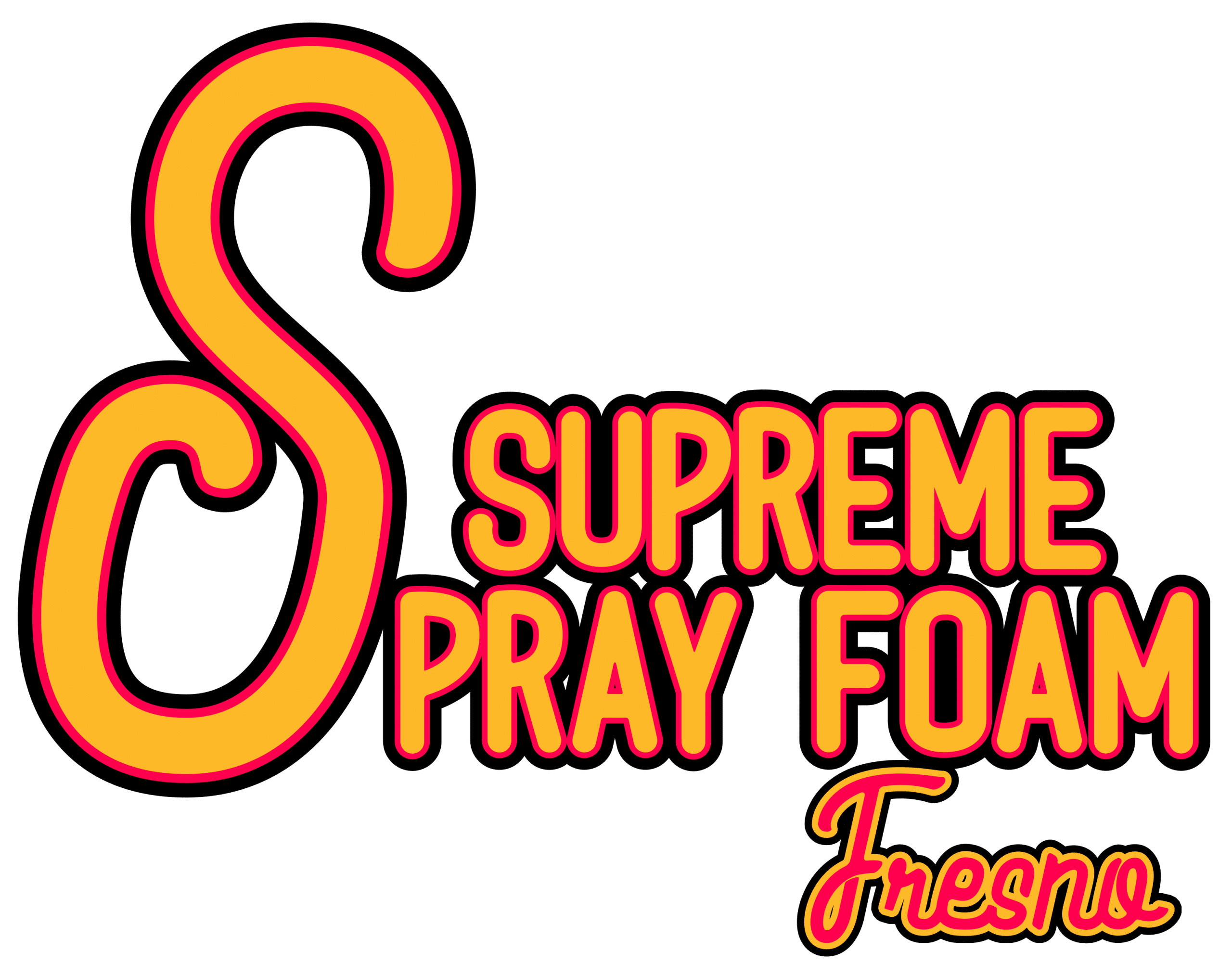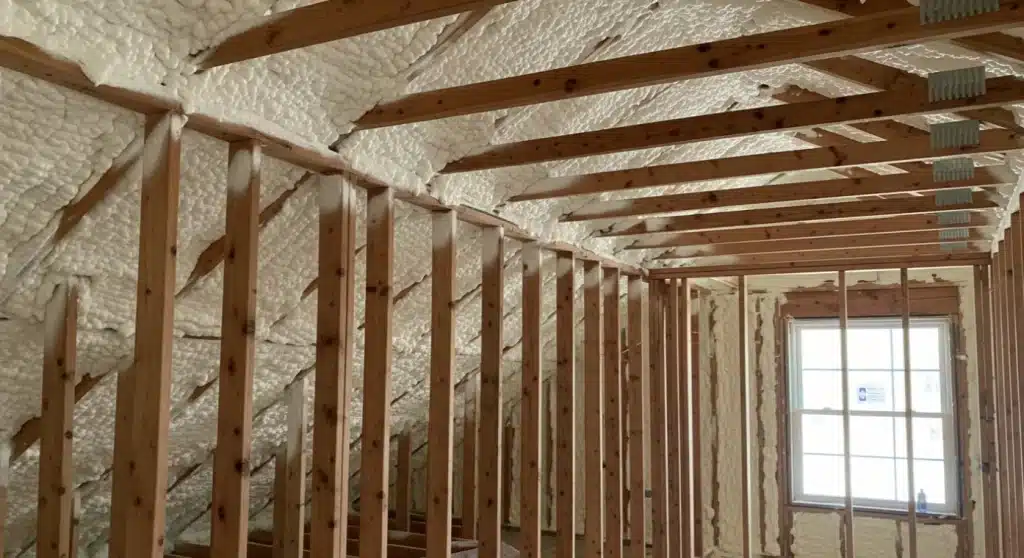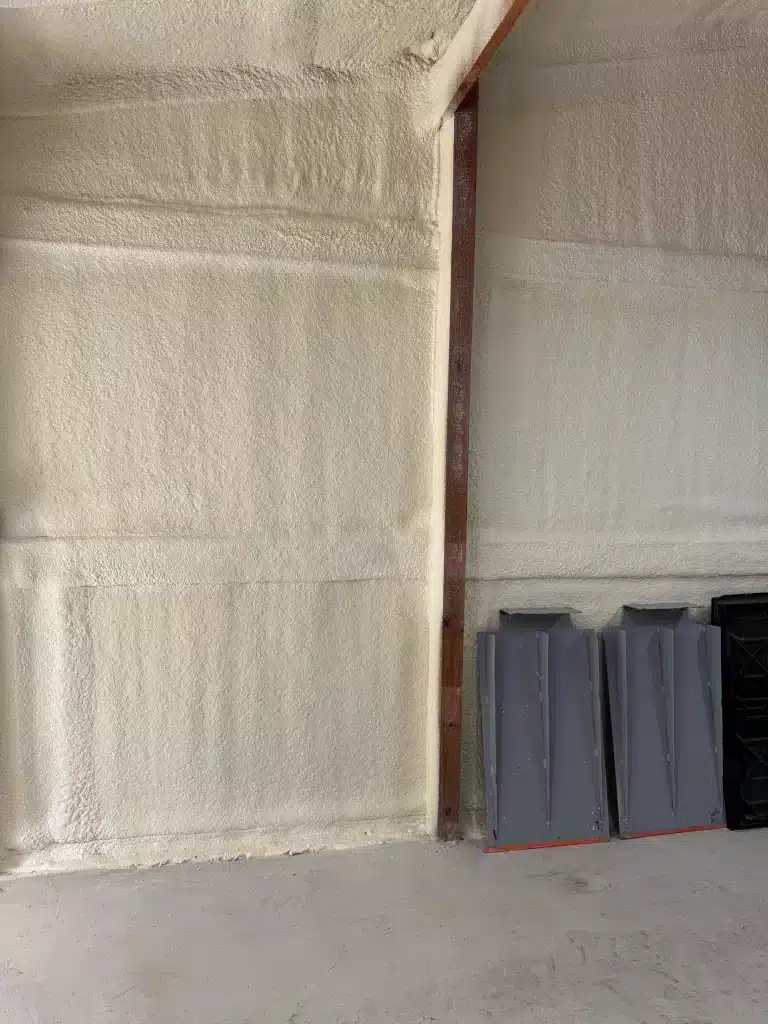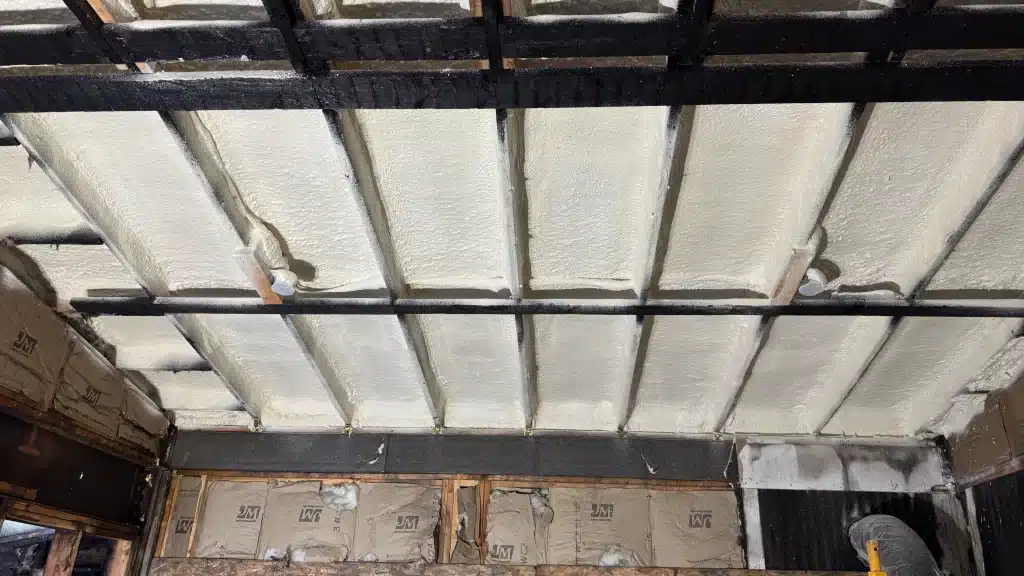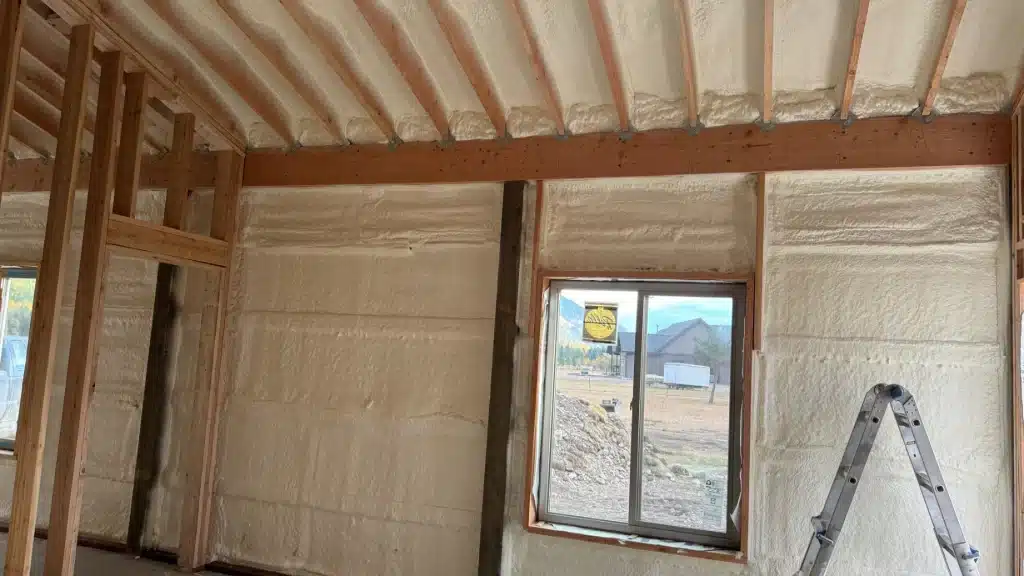Spray foam insulation performs well in Fresno’s hot summers and cool winters. It reduces indoor temperature swings, lowers strain on HVAC systems, and minimizes energy loss. For homes and commercial buildings in Fresno, spray foam provides stronger air sealing than fiberglass or cellulose, which is especially beneficial during extreme heat in July and August.
Experience shows that Fresno’s high number of cooling degree days makes energy efficiency a priority. Spray foam insulation helps control heat transfer, cuts utility costs, and limits moisture issues common in crawl spaces and attics. For most properties, the benefits outweigh the higher installation cost.
Key Differences in Insulation Types for Fresno Conditions
| Insulation Type | R-Value per Inch | Air Seal Quality | Moisture Resistance | Typical Lifespan | Fresno Climate Performance |
|---|---|---|---|---|---|
| Fiberglass Batts | 2.2 – 2.7 | Low | Poor | 15–20 years | Struggles in extreme heat |
| Cellulose | 3.2 – 3.8 | Moderate | Moderate | 20–30 years | Better than fiberglass but still limited |
| Open Cell Spray Foam | 3.5 – 3.8 | Excellent | Moderate | 25+ years | Strong air seal, good for attics |
| Closed Cell Spray Foam | 6.0 – 7.0 | Excellent | High | 30+ years | Superior performance in heat and moisture |
Technical Performance Data
| Metric | Open Cell Spray Foam | Closed Cell Spray Foam |
|---|---|---|
| R-Value per Inch | 3.5 – 3.8 | 6.0 – 7.0 |
| Water Absorption | Higher | Very Low |
| Air Leakage Reduction | Up to 90% | Up to 95% |
| Structural Strength Added | Low | High |
| Ideal Applications | Attics, walls | Crawl spaces, roofs, foundations |
Fresno Climate Considerations
Fresno’s climate has long stretches of 95°F+ days with very low humidity, followed by cooler winters that dip into the 30s. Spray foam’s thermal resistance reduces AC run-time during heat waves. The insulation also helps protect against air leaks during winter nights, preventing drafts. A key advantage is moisture control in crawl spaces, where Fresno’s irrigation-heavy soils sometimes lead to humidity buildup.
Bonus Tip: For homes with tile roofs common in Fresno, closed cell spray foam improves roof deck strength while lowering attic temperatures.
Things to Evaluate Before Choosing Spray Foam
- Building Age and Design: Older homes may require additional prep work before spray foam installation.
- Moisture Levels: Closed cell foam is recommended where soil or irrigation raises crawl space humidity.
- Existing Insulation: Removal of old fiberglass or cellulose may add to project scope.
- Long-Term Goals: Consider structural reinforcement benefits of closed cell foam if planning renovations.
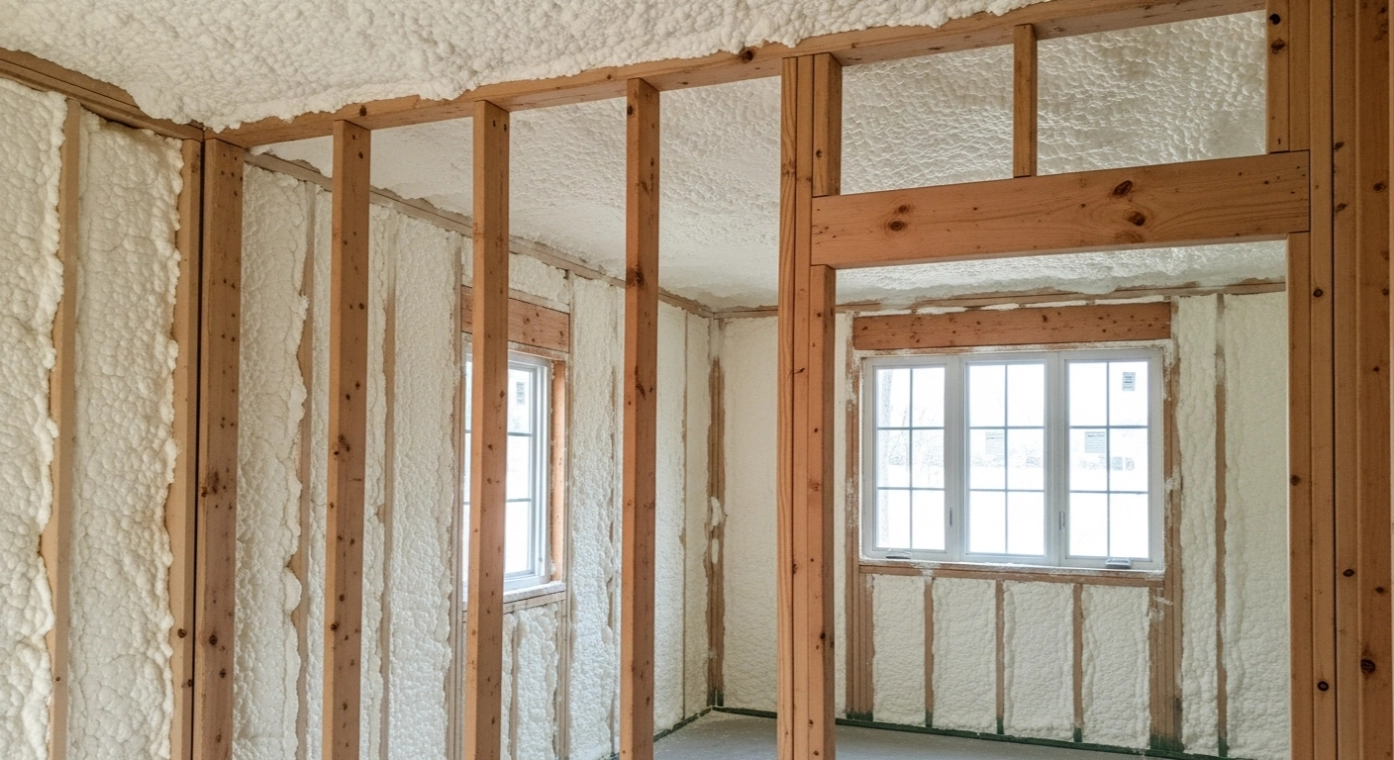
Services Provided for Fresno Properties
- Residential Spray Foam Insulation: Improves comfort and efficiency in single-family homes.
- Commercial Spray Foam Insulation: Provides high-performance solutions for office, warehouse, and retail properties.
- Attic Insulation: Keeps heat out of living spaces during Fresno’s hot summers.
- Crawl Space Spray Foam Insulation: Protects against moisture and energy loss at the foundation level.
Common Questions Before Deciding
Does spray foam make a home airtight?
Yes, spray foam creates a continuous barrier that limits air movement.
Can spray foam be used with other insulation types?
Yes, hybrid systems are sometimes used in attics and walls.
Is spray foam safe indoors?
Once cured, spray foam is inert and safe for indoor use.
Will spray foam prevent roof leaks?
It reduces risk but does not replace proper roof maintenance.
Key Takeaways
Spray foam insulation holds strong advantages for Fresno’s climate. Open cell foam works well for attics and walls, while closed cell foam delivers the best results for crawl spaces, roofs, and areas exposed to heat and moisture. The choice depends on property design, moisture levels, and long-term structural needs.
Contact for More Information
For details on insulation options, contact Supreme Spray Foam Fresno at (559) 545-0800 or email [email protected]. The team provides expert guidance on residential and commercial spray foam applications suited for Fresno’s climate
FAQS
How long does spray foam insulation last?
Typically 25–30 years without major performance loss.
Can spray foam be repaired if damaged?
Yes, small areas can be patched without replacing the full system.
Does spray foam settle over time?
No, it retains its shape unlike cellulose or fiberglass.
Is maintenance required?
Minimal, but annual attic and crawl space checks are recommended.
Can spray foam reduce outside noise?
Open cell foam improves sound absorption inside walls.

